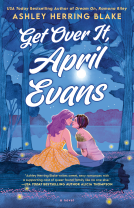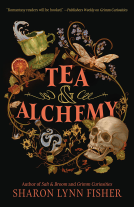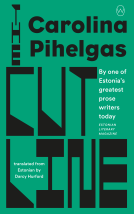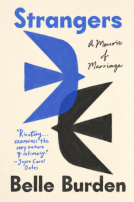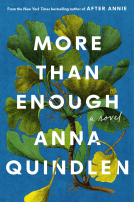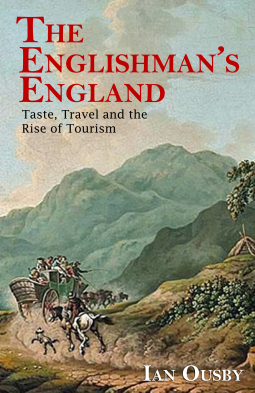
The Englishman's England
Taste, Travel and the Rise of Tourism
by Ian Ousby
This title was previously available on NetGalley and is now archived.
Send NetGalley books directly to your Kindle or Kindle app
1
To read on a Kindle or Kindle app, please add kindle@netgalley.com as an approved email address to receive files in your Amazon account. Click here for step-by-step instructions.
2
Also find your Kindle email address within your Amazon account, and enter it here.
Pub Date Sep 13 2016 | Archive Date Aug 03 2017
Description
“If my journals should remain legible, or be perused at the end of 200 years, there will, even then, be little curious in them relative to travel, or the people, because our island is now so explored; our roads, in general, are so fine; and our speed has reach'd the summit.” Or so one late eighteenth century traveller thought, reminding us that the English tourist industry is not the modern creation we often suppose.
In this fascinating and original study Ian Ousby investigates the landmarks chosen by the English for their leisure travel over the centuries. He looks in particular at four types of attraction still prominent on the tourist map of England: literary shrines, country houses, picturesque ruins and the natural landscape. All these first became objects of fashionable attention during the eighteenth century, when improvements in transport combined with a spirit of practical inquiry to breed the first generation of travellers who called themselves ‘tourists’.
Drawing on a wide range of sources - journals, travel books and guidebooks, novels and poems, as well as many engravings – Ian Ousby traces the canons of taste which led the early tourists to seek out places like Stratford-upon-Avon, Chatsworth, Tintern Abbey and the Lake District, and records the stages by which these places acquired the trappings of the tourist attraction. Above all, he shows the development not just of an industry but of a state of mind marked, from its earliest phase, by the underlying fear that tourism is fated to spoil or even destroy the very thing it most admires.
Advance Praise
“Not a guidebook, not a travel book, but a pioneer work of what we must call ‘tourist history’, written, moreover, with elegance and style. Like all good history it contains valuable lessons for the future as well as the past, and should be required reading for all who know and care about the beauties, natural and architectural, of our country."
John Julius Norwich
“In relating the evolution of such attractions as Poet's Corner, Stratford-upon-Avon, Stonehenge and the Lake District, Ian Ousby - a specialist in both the literature and the topography of England - illuminates great stretches of this country's social and cultural history.”
The Independent
“Witty, well-focused, highly pertinent… His slice of late eighteenth-century cultural history, from the, rise of road maps to the vain thunderings of Wordsworth against the depredations of vulgar trippers, is oddly reassuring in its ageless vision of good taste shuddering at the onrush of mass enthusiasm.”
The Observer
Available Editions
| EDITION | Paperback |
| ISBN | 9781910670859 |
| PRICE | $14.99 (USD) |
Average rating from 8 members
Featured Reviews
On the whole, I found The Englishman's England to be an entertaining and interesting read. In it, Ousby considers the history of tourism through the growing 18th century desire to visit places of literary connection and natural beauty, along with the ever-increasing trend of touring country houses. This work is an intriguing social study and I particularly enjoyed Ousby's inclusion of snippets from contemporary accounts of some of the places still visited today. I imagine that this book will appeal both to the seasoned traveller and those interested in 18th century social history.
 Janet P, Reviewer
Janet P, Reviewer
This book looks at traveling in England and how it changed over the hundred years from the mid-17th Century to the mid-18th (mostly pre-railroad). It looks at four types of destinations: literary sites, country homes, ruins, and natural features.
The plurality of the book is spent on natural features. Full of quotes by writers of the time, it does a good job of supporting the author's contentions that:
-- even at this time there was a notion of tourist in our modern sense
-- most of these places had a commercial aspect even over 200 years ago
-- our philosophies and ideas are reflected in how we perceive things, especially Nature, and shape what we do with them
-- in becoming popular many of these sites change
-- with many of these sites there is a balance between conservation and renovation that began to be apparent as early as Wordsworth's time
While the book is interesting, I thought the tone was overly pedantic and ponderous, especially in the last chapter which covers nature. Ousby seems to have definite ideas about the national interest and government involvement in these sites but he never really presents the arguments in favor of national control and the common good.
The book would have been better if he had.
 Deborah W, Reviewer
Deborah W, Reviewer
"The Englishman's England" looked at what sites and objects drew the interest of the eighteenth century tourist. The author looked at traveler's letters, diaries, journals, and guide books to see what sites they visited and what they thought about them. He often quoted from these sources. If one tourist talked about a place, others soon came to visit until it turned into a tourist trap. Locals sold mementos, guides demanded fees, stations were marked out for ideal viewing of a scene, or cannons, singing, or instruments were used to heighten the traveler's experience.
The author looked at the literary shrines they visited (graves or monuments to an author, the places the author wrote about, their birth places, etc.), their opinions about various fancy country houses (and the fees and attitudes of those allowing or guiding these tours), the draw of ruins like Stonehenge or of old abbeys and cathedrals, and places in the Peak District and Lake District that drew people for the caves, crags, and views. He talked about changing tastes reflected in how they viewed various sites and what they criticized.
These sites were usually under private ownership at the time, so what the owners did with the sites provoked discussion about how far a site (like a ruin) should be preserved in its present state or developed to accommodate tourists. Overall, I'd recommend this interesting book.
 Librarian 299542
Librarian 299542
This is the perfect book for people who enjoyed Bill Bryson's stories about traipsing around England and the landmarks he found in his walks. Ousby brings us an entertaining history of the tourism industry in England. He gathered primary sources to support his stories and takes us around the island to various sites with literary and historical significance.
 Christina E, Reviewer
Christina E, Reviewer
Recommended for fans of travel writers such as Bill Bryson. I enjoyed much of the book although I found some of the passages more interesting and readable than others. Enjoyed it overall.
 Deborah M, Reviewer
Deborah M, Reviewer
This book concerns the tourism of England and focuses on four main areas. These are literary shrines, especially that of the Romantics, such as Wordsworth; country houses, such as Strawberry Hill; ancient monuments, such as Stonehenge and the natural landscape and how man had his affect on this in good ways and bad.
I did enjoy this book but felt that in some cases it was a bit long winded and dare I say boring. Overall though I did find myself looking at the countryside in a different way.
I was given this book by NetGalley and the publisher. This is my voluntary review.
Readers who liked this book also liked:
Jennifer Love Hewitt
Biographies & Memoirs, Nonfiction (Adult), Parenting, Families, Relationships
Kim Hana; Hwang Sunwoo
Biographies & Memoirs, Nonfiction (Adult), Parenting, Families, Relationships
